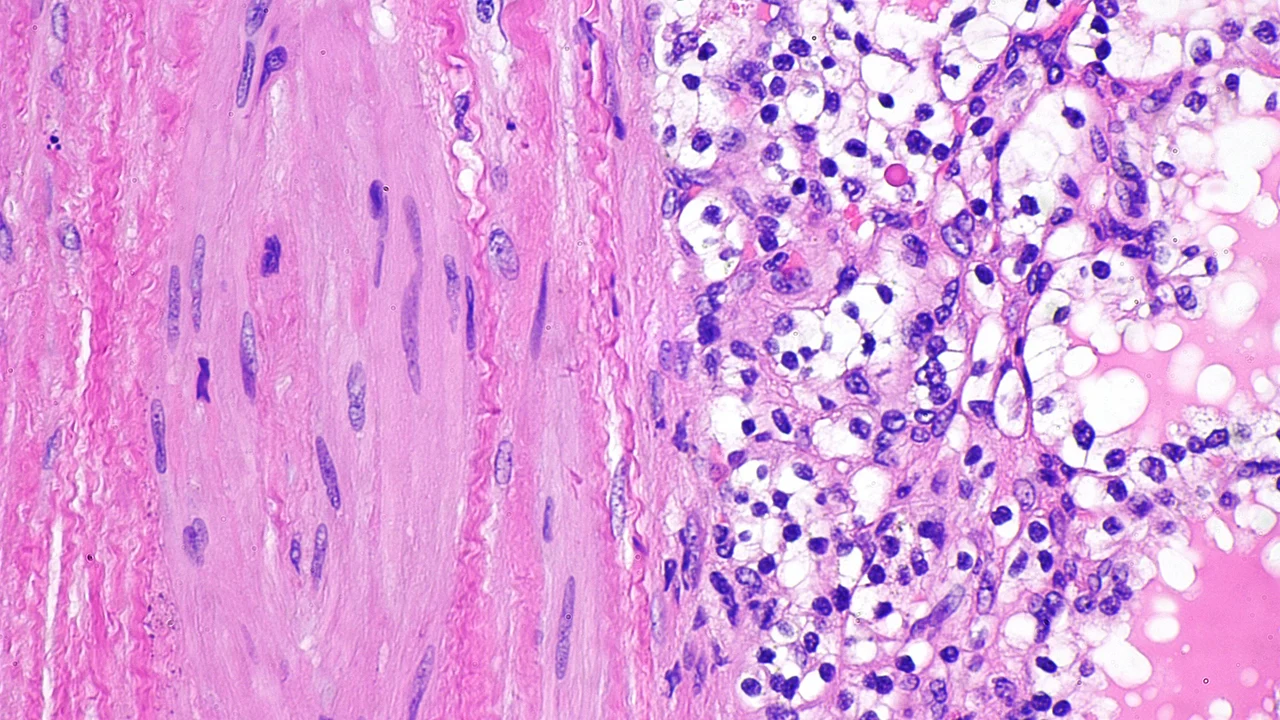Renal Cell Carcinoma – What You Need to Know
If you’ve heard the term “renal cell carcinoma” (RCC) and wonder what it means, you’re in the right place. RCC is the most common type of kidney cancer in adults, and it starts in the cells that line the tiny tubes inside your kidneys. Knowing the basics can help you spot problems early and talk confidently with your doctor.
Common Signs & Risk Factors
Most men don’t notice RCC until a routine scan picks it up, but some symptoms show up first. Look out for blood in the urine, a persistent ache or lump on the side of the back, and unexplained weight loss. If you’re over 50, smoke, have high blood pressure, or carry extra weight, your risk goes up.
Family history matters too. If a close relative has had kidney cancer, ask your doctor about screening sooner rather than later. Even if you feel fine, a quick ultrasound can catch a tumor before it spreads.
Diagnosis and Treatment Paths
When doctors suspect RCC, they’ll order imaging tests like CT or MRI to see the size and location of the tumor. A biopsy might follow to confirm it’s cancerous. Staging tells you how far the disease has moved – this guides treatment decisions.
Surgery is the go‑to for early‑stage RCC. Doctors remove either part of the kidney (partial nephrectomy) or the whole organ (radical nephrectomy). Newer techniques use robots to make incisions smaller and recovery faster.
If surgery isn’t an option, targeted therapies and immunotherapy step in. Drugs such as sunitinib or pembrolizumab attack cancer cells or boost your immune system to recognize them. These medicines can keep the disease under control for years when surgery isn’t feasible.Radiation is rarely first‑line but helps relieve pain if the cancer spreads to bone or brain. Clinical trials also offer access to cutting‑edge treatments, so ask your oncologist about ongoing studies in your area.
Living with RCC means paying attention to lifestyle tweaks that support treatment. Keep blood pressure under control, quit smoking, and aim for a balanced diet rich in fruits and veggies. Regular follow‑up scans are crucial – they catch recurrences early when they’re most treatable.
Bottom line: renal cell carcinoma can be serious, but many men beat it with early detection and modern therapies. Stay aware of the signs, discuss your risk factors with a doctor, and don’t skip scheduled check‑ups. Your kidney health is worth the effort.
The Benefits of Physical Therapy for Advanced Renal Cell Carcinoma Patients
As someone who has personally seen the effects of advanced renal cell carcinoma, I cannot overstate the importance of physical therapy in the treatment process. This article will explore how therapeutic exercises can help to manage pain, increase strength, and improve quality of life for these patients. It's not just about medical treatments - a holistic approach combining physical therapy can make a significant difference. Dive in to grasp a better understanding of this approach in managing advanced renal cell carcinoma.
© 2026. All rights reserved.

